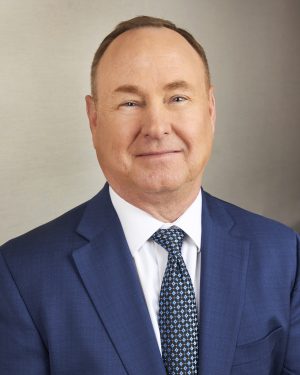I am Lee Blank, CEO of Summit Carbon Solutions, and I am writing to provide insights about a project we believe holds significant potential for enhancing environmental stewardship and contributing to the socioeconomic wellbeing of our local communities, including those which are Native American.

Summit Carbon Solutions is leading an innovative venture aimed at capturing, transporting, and permanently storing carbon dioxide (CO2) produced during the ethanol production process. This endeavor aligns with our commitment to reduce our environmental impact, a commitment we share with Native American cultures and their tradition of respecting and preserving Mother Earth.
Our carbon capture and sequestration (CCS) technologies aim to prevent the release of more than 18 million tons of CO2 into the atmosphere annually, which is akin to taking more than 4 million cars off our roads each year. We recognize that Native communities, due to their close relationship with and dependence on natural resources, can be significantly affected by environmental disruptions. Our efforts, therefore, are focused on preserving our shared environment and protecting the future of these communities.
This project, while ambitious, does require significant infrastructure. Thus, we pledge to work closely with all communities that may be impacted by our operations. We see this as a collaborative venture, with community engagement and partnership at its core.
Our project also presents substantial local economic benefits, including job creation and support for local economies. We are committed to providing employment opportunities to diverse individuals, including members of the Native American communities. Furthermore, our project aids in fostering a more sustainable ethanol production process, which can have lasting positive effects on the local biofuel industry and the economy.
We are aware that our work may present unique challenges, particularly concerning the preservation of sacred and historically significant lands. We promise to maintain open dialogue, respectful negotiations, and appropriate compensation where required. Our commitment extends to the protection of cultural heritage.
We understand the importance of safeguarding culturally and historically significant lands and sites. To date, with input and participation from Tribal Historic Preservation Officers and their staff, the Project is performing 100% cultural surveys of all Project routes and has avoided all (more than 1,100) Tribally-identified heritage resources. Our team remains dedicated to maintaining open dialogue, addressing concerns respectfully, and ensuring protective measures are in place to honor cultural heritage. More information can be found https://summitcarbonsolutions.com/tribal-outreach/ and we invite you to join the conversation by emailing us at [email protected].
Let us join hands in our shared goal: striking a balance between sustainable development and the preservation of our cultural and natural heritage.
Sincerely,
Lee Blank
CEO, Summit Carbon Solutions
Help us defend tribal sovereignty.
At Native News Online, our mission is rooted in telling the stories that strengthen sovereignty and uplift Indigenous voices — not just at year’s end, but every single day.
Because of your generosity last year, we were able to keep our reporters on the ground in tribal communities, at national gatherings and in the halls of Congress — covering the issues that matter most to Indian Country: sovereignty, culture, education, health and economic opportunity.
That support sustained us through a tough year in 2025. Now, as we look to the year ahead, we need your help right now to ensure warrior journalism remains strong — reporting that defends tribal sovereignty, amplifies Native truth, and holds power accountable.
 The stakes couldn't be higher. Your support keeps Native voices heard, Native stories told and Native sovereignty defended.
The stakes couldn't be higher. Your support keeps Native voices heard, Native stories told and Native sovereignty defended.
Stand with Warrior Journalism today.
Levi Rickert (Potawatomi), Editor & Publisher
